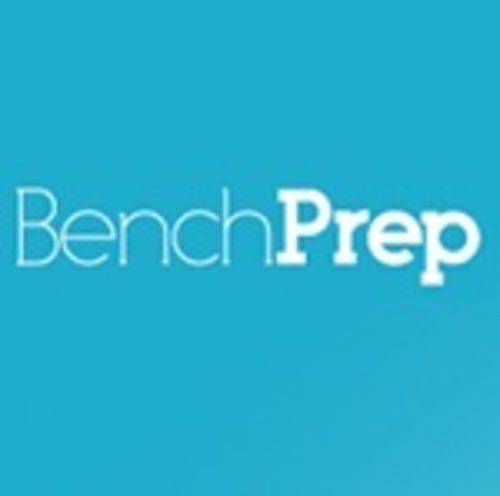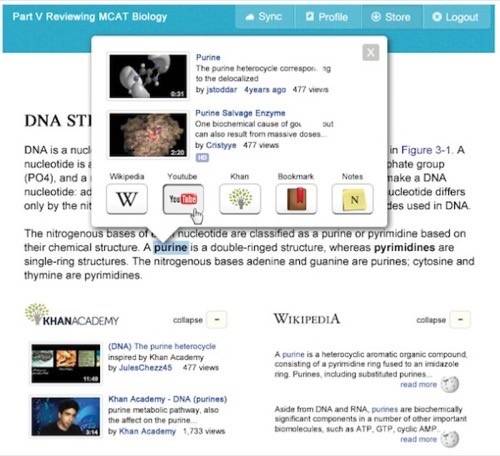Online studying solution BenchPrep has announced a new feature called OpenPrep that adds the vast reach of the open Web to its suite of paid courses from major publishers. BenchPrep sells interactive courses for standardized tests like the LSAT, GMAT, GRE, MCAT, Bar Exam and more, and they sync your work across all your digital devices.

OpenPrep supplements those courses with open Web resources like Wikipedia articles, Khan Academy tutorials, YouTube videos and more, all pulled in by algorithms tuned to find the most relevant content for your course of study.

“YouTube and Wikipedia are knowledge warehouses, which rival the greatest libraries ever built yet they lack the structure and curriculum required to master a subject,” says BenchPrep CEO Ashish Rangnekar. “Our goal is to help students tap into this open knowledge base in an intuitive, convenient and engaging way while maintaining the academic structure of a course.”
OpenPrep accomplishes this by using topic detection and ranking algorithms to analyze the test prep material and draw in relevant material from these free Web resources using their APIs. Additional resources from Wolfram Alpha, Pearson, Associated Press and more are coming soon.
Rangnekar says that BenchPrep students have already begun to take advantage of these new open Web options, tweeting and sharing YouTube videos to their friends from within the BenchPrep applications. Social learning is an integral part of BenchPrep’s courses, but the new OpenPrep features let students share what they learn with friends outside their courses.
BenchPrep’s cross-platform test prep tools are now enhanced by some of the vastest libraries of knowledge available on the Web. Check out some of our past coverage of how educational publishers are adapting to the networks and form factors of the future.
Also check out this study we covered yesterday about how users’ love of interactivity and control has made tablets a better way to read and learn.
How do you think social Web technologies in education can supplement face-to-face learning?










